If there is one country in the world that stands out for its standards of greener living and containing the carbon footprint of tourism, it has to be Bhutan where environmental sustainability is at the forefront of the political agenda. With 81 percent of the landmass under forest cover that serves as a massive carbon sink, and power generation sourced from its fast-flowing rivers, the world’s only carbon neutral and carbon negative country remains constantly on the alert to protect and maintain its pristine status as the world’s greenest nation.
This remote Kingdom of Bhutan, located in the Eastern Himalayas, has for centuries followed the most stringent practices to keep it clean and green–and this is the axle on which its allure revolves as the world’s leading travel destination today.
Tourism development in Bhutan has moved with caution, with checks and balances kept in place to maintain its natural and cultural heritage. One of the four pillars of its Gross National Happiness policy is the conservation of the environment. With the opening up to tourism after the abeyance of the Covid pandemic, the country upped its Sustainable Development Fee for foreign visitors; the tourism levy has been charged for over three decades now.
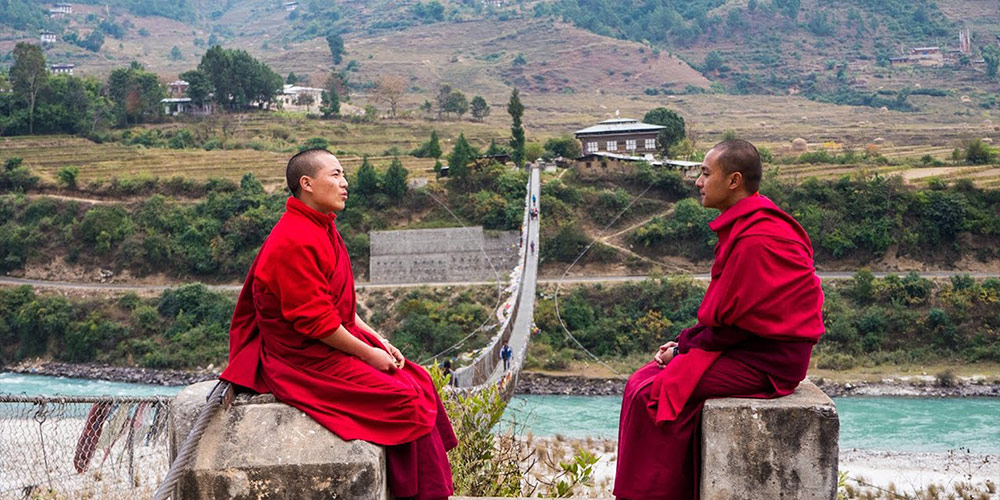
Bhutan has re-strategized its ‘High Value, Low Volume’ tourism policy to ensure the sustainable use of tourism resources and to create an enabling environment for a vibrant, non-discriminatory, inclusive, and high-value tourism industry.
There’s a growing demand from the global travelling community to opt for holidays in regions with contained industrial development. Bhutan economy is based on agriculture and forestry, which is the mainstay of livelihood for over 60% of the population. The government has made provisions for free electricity to rural farmers to ease firewood dependency, investment in sustainable transport by subsidising the purchase of electric vehicles, support for the transition to its Clean-Green Bhutan agenda. Back in the day, Bhutan was the world’s first country to turn its agriculture completely organic, with a blanket ban on sales of pesticides and herbicides, relying instead on the community’s animals and farm waste for fertilisers.
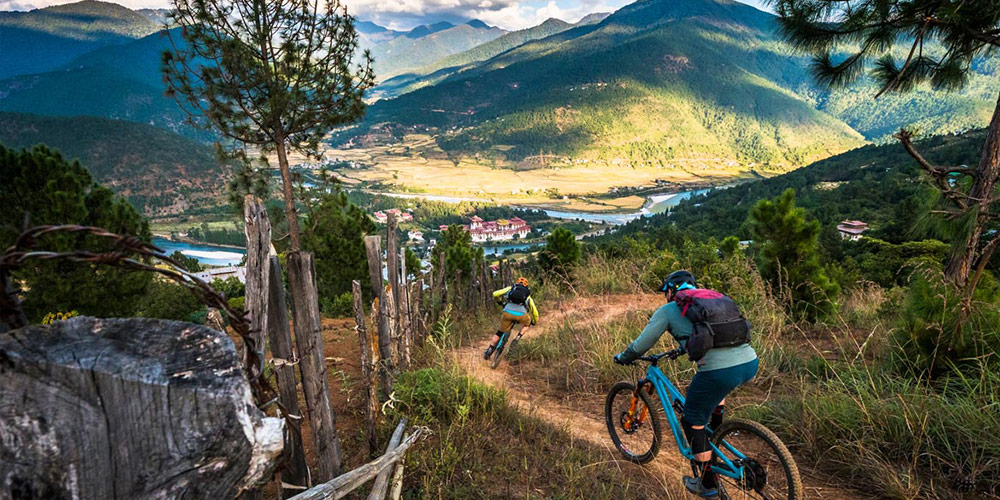
Around fifty percent of Bhutan is protected as national parks, nature reserves and wildlife sanctuaries–all connected by a network of biological corridors. What is interesting is the government’s support in helping communities who live in the parks manage the forests properly, adapt to climate change and live harmoniously with the environment.
At the heart of greener living is the Bhutanese mindset of sustainable living, which drives communities in all its geographies to be conscious of their ecological footprint. For example, ‘Ecology Note–Towards a Clean, Green and Beautiful Bhutan’, which is an environmental education tool, was developed based on the local context of Bhutan, including their daily custom, lifestyle, and Gross National Happiness. It provides opportunities to deepen the student’s understanding of sustainable waste and resource management topics.
Eco-mobility offers the most memorable ways to explore the grand biotic diversity of Bhutan’s nature trails through its forests and mountainscapes. Mountain biking and trekking can transform into glorious eco-centric adventures where you have opportunities aplenty to plunge into the rhythms of the daily lives of the local communities and their cultural pursuits. Follow the gorgeous trekking trail to the Gasa Hot Springs in Punakha district, where you can join locals enjoying a good soak in the mineral-rich waters, a centuries-old wellness tradition in Bhutan. This may also be followed by a salt scrub to remove dead skin cells and an oil massage to relieve tired muscles.
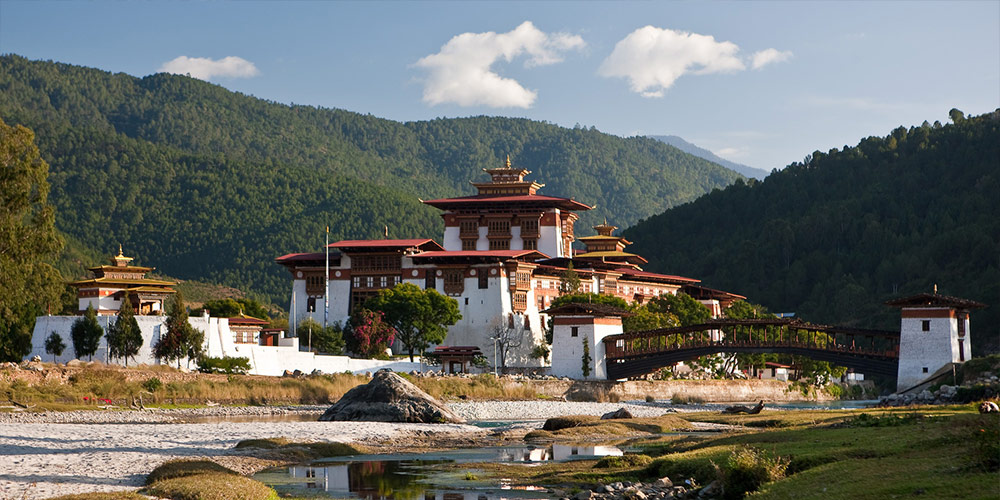
You can combine a spiritual quest with that steep hike up to the legendary Tigers Nest or Taktsang Dzong in Paro. You will only leave your footprints on the trail to the hallowed spot it where Guru Padmasambhava made the perilous journey here in the 8th century to meditate in a cave here. The only vehicle ever used to get here, as legend has it, was the tigress on whose back the Buddhist sage has said to have flown to this vertiginous mountain location. Even then, the tigress would only have left her paw marks… no fossil fuels!
On a fun-filled hop-on-hop-off mountain biking tour in the Bhutanese countryside en route to Trongsa top up eco-centric holiday memories with close interactions with the local communities. Chat up peasants, take selfies with village kids and the family yak, gulp down piping hot tumblers of suja (butter tea)–journey back in time just soaking up the rich atmospherics of time-worn traditions and everyday living set against Bhutan’s upscale natural beauty.
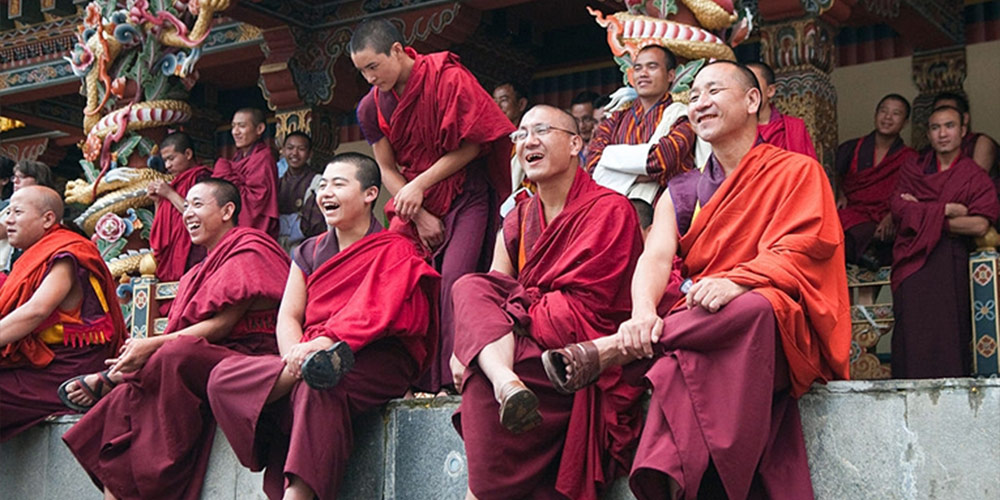
Discover the sustainable ways of green living in rural Bhutan at a village farm. Step into the rhythms and routines of daily life, which begin early for most of the family. Really get immersed in the experience by donning local attire and head out to the fields with the farmer and help when you can. At the end of the workday, return home to a traditional hot stone bath and a lovely hot dinner of red rice and local produce cooked with and native spices. Tumblers of Ara, the local rice wine, work wonders on your sense of wellbeing as you soak in the familial vibe of a Bhutanese rural home.
You can join the seasonal mushroom camps in a pristine forest where locals wait out the days from July to August and September, when Matsutake Mushroom (Sangay Shamu) foraging transforms meal menus into gourmet journeys. The delectable and natural seasonal treat has even inspired an annual mushroom festival! These delicious mushrooms can’t be cultivated, so they are really prized for their natural state. Acquire new kitchen skills from your hostess by learning how to make the iconic Bhutanese dish, shamu datsi, created with cheese and mushrooms that are spiced up with the mandatory red or green chillies.
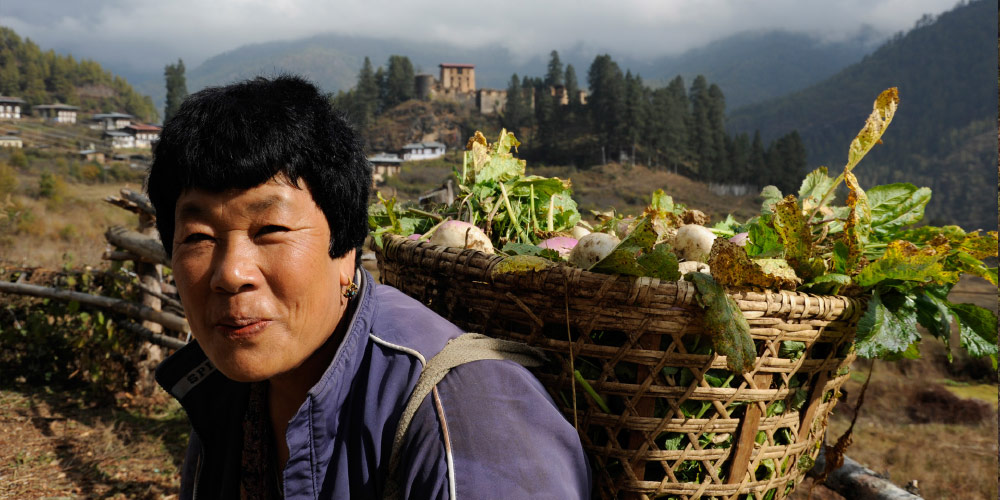
Bhutan’s holistic take on sustainable lifestyle choices and its outcomes have shown the world that, given the will, each one of us can consciously contribute to the preservation and well-being of Planet Earth.


